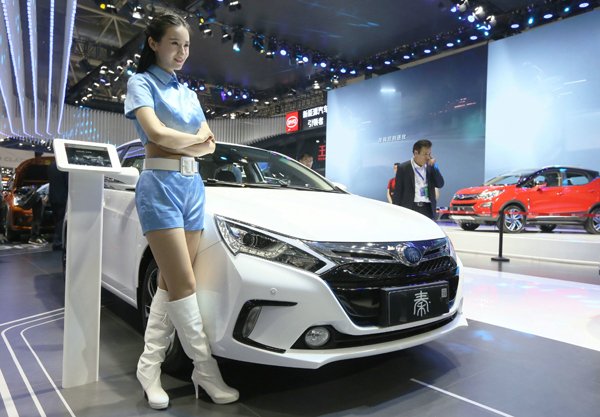In the gloomy industrial zone of western Shanghai, amid factories that produce hundreds of thousands of gasoline-powered cars, transmissions and engines every year, the world's largest automaker Volkswagen is in a hurry to complete a plant that will build brand-new cars for VW.
The 74-acre site will house a newfangled assembly line conveyor belt made of plastic instead of conventional steel or wood, a system that can be reconfigured on the fly at low cost as it is designed to produce cars whose shapes and components can change more often and more radically than any models previously produced by the company. In addition, the plant will be equipped with infrared cameras to monitor the safety of stocks of components that the company has never encountered in large volumes before, such as huge batteries that tend to quickly ignite.
What's happening here in Shanghai is Volkswagen's decisive stake in achieving market leadership in the era of electric vehicles. “Volkswagen” translates to “people's car,” and for over eight decades of VW's existence, the company's gasoline-powered vehicles have been purchased by Europeans or Americans.
But now the largest market for VW vehicles is China, which is fighting hard against pollution by introducing new environmental regulations.
In order not to be ousted from the Chinese market, the company decided to focus on the production of electric vehicles (EV). And thus, the new plant in Shanghai is VW's outpost in the struggle for life. When it starts production next year, it will be “the most modern Volkswagen plant in the world,” says Fred Schulze, who heads a joint venture between VW China and China’s largest state-owned automaker Shanghai-based SAIC Motor. Schulze, a VW veteran, previously led the production of sport utility vehicles and crossovers at Audi VW.
Difficult choice
Automakers today face tough choices. On the one hand, the end of the era of internal combustion engines has not yet arrived. According to energy data company Wood Mackenzie, for the first half of 2019, 97% of all new passenger cars sold worldwide had only a gasoline engine under the hood.
However, at the same time, sales of electric vehicles are growing rapidly, exceeding the most daring forecasts.
Around the world, according to Wood Mackenzie, cumulative sales of passenger electric vehicles, including all-electric, without combustion engine, and hybrid EVs, in which the internal combustion engine complements the battery system, jumped in the first half of 2019 compared to the year earlier by 47% to 1.1 million units. This growth is due to a number of factors:
- reduced production costs and improved technology, especially for batteries;
- creating, mainly in large cities, convenient infrastructure for electric charging;
- significant government support.
The winner gets more
The winner in this global turn of the automotive industry towards an electric future is likely to be determined in China. Over the past few years, a country where SUVs are known to be in demand in many densely populated areas with polluted atmospheres, has become the largest market for electric vehicles in the world.
Beijing's policy of combining heavy government subsidies for the EV sector and environmental caps on polluting emissions, China accounted for 54% of global hybrid and all-electric EV sales in the past year ended June 30, according to Wood Mackenzie. in the world. For comparison, the US share was only 16%.
But this is just the beginning. The Chinese Society of Automotive Engineers has said that 40% of the country's passenger car sales should be all-electric or plug-in hybrids by 2030. The wait isn't too long for an industry that plans to develop over a 10-year perspective.
Today, a network of electric charging stations is developing in major cities in China, large enough to charge several hundred vehicles at the same time. Hundreds of Chinese firms are currently manufacturing electric vehicles.
The trend is clear: a country that has followed the world throughout the 20th century with petrol-burning cars is taking over the leadership in the development and production of electric vehicles in the 21st century.




